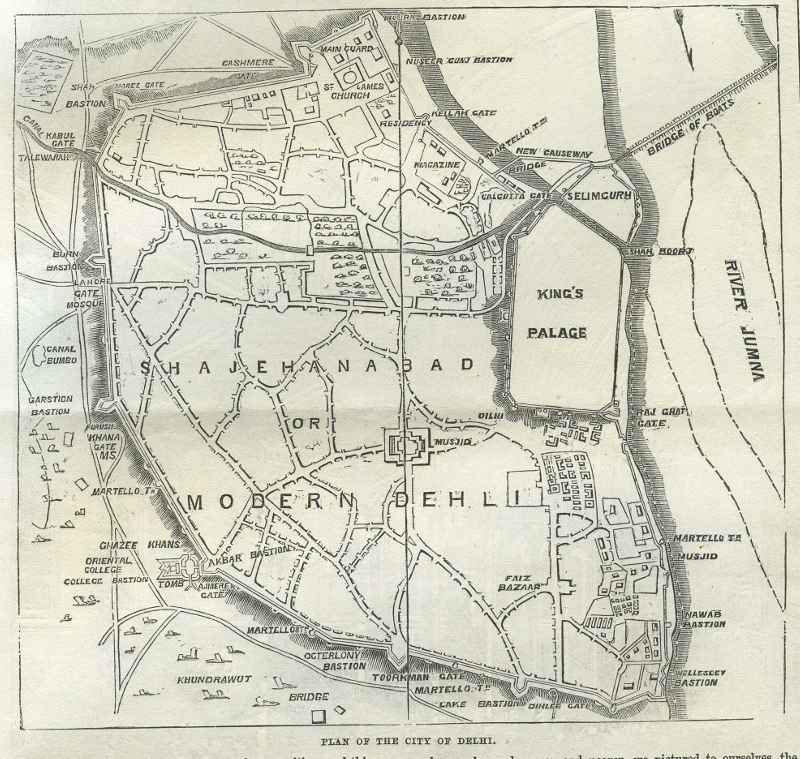FWP:
SETS == HERE/THERE
For background see S. R. Faruqi's choices. For more on Ghalib's unpublished verses, see the discussion in {4,8x}.
To call someone a 'guest of a few days' [chand roz kā mihmān] was a common metaphor: in religious contexts it could evoke the brevity of a human life, or it could be used for someone who was not expected to live long. It has a tone of sympathy and even pathos; it solicits compassion (since a guest both needs and deserves care) for the plight of the person to whom it is applied.
The commentators are right to emphasize the crucial role of yāñ . Its (surely deliberate) positioning right in the midst of what would otherwise be the idiomatic chand roz kā mihmān is sufficient in itself to assure it of extra attention. The commentators differ about the relationship between the 'here' in the second line, and the address to 'residents of Delhi' in the first line. And this disagreement is exactly what Ghalib has built into the verse, to keep our minds zigzagging back and forth between two possibilities.
For 'here' ought, syntactically and logically, to mean 'here in Delhi'-- since the verse is addressed to dillī-vālo , and since Ghalib's real lifelong chosen home city was Delhi. But then, why should a lifelong dyed-in-the-wool Delhi-dweller be called a 'guest of a few days' in Delhi? If 'here' is taken to refer to Delhi, then the suggestion can only be that since Asad is close to death, the people of Delhi won't have him around their city much longer, and they should treat him with kindness while he's still with them.
And if 'here' is taken in a more abstract sense, then the suggestion is that Asad is 'not long for this world' (as we might say in a counterpart English expression), and deserves the compassion that all we doomed mortals need. On this second reading, the reason for addressing the people of Delhi is that they're the ones in the vicinity, the ones who ought to show better behavior-- since the first line makes it all too likely that they have been 'tormenting' Asad, and the speaker is reproaching them for it.

Asi:
Mirza's real birthplace and abode [maskan] was Agra. On this basis, he says, 'Oh residents of Delhi, why are you tormenting poor Asad? Don't cause him anxiety! He is only a poor traveler-- he is a guest of a few days. Then [after that], 'where are you, and where is he?' [you'll have no further contact].
== Asi, p. 218